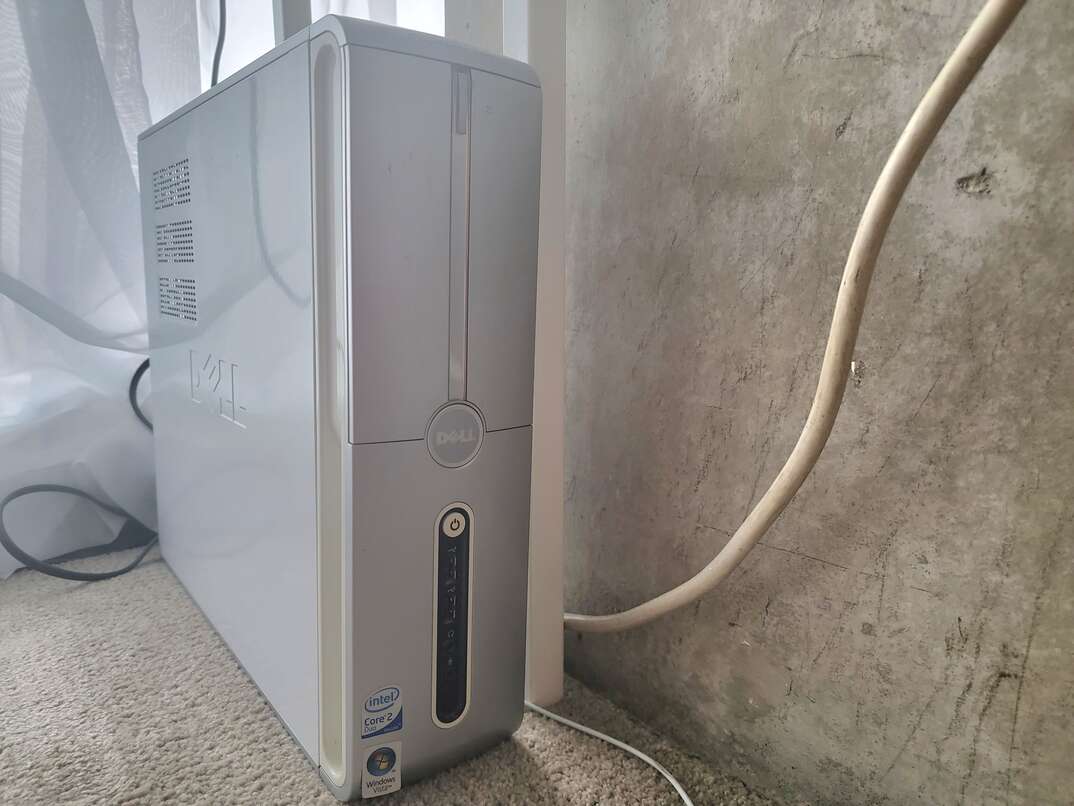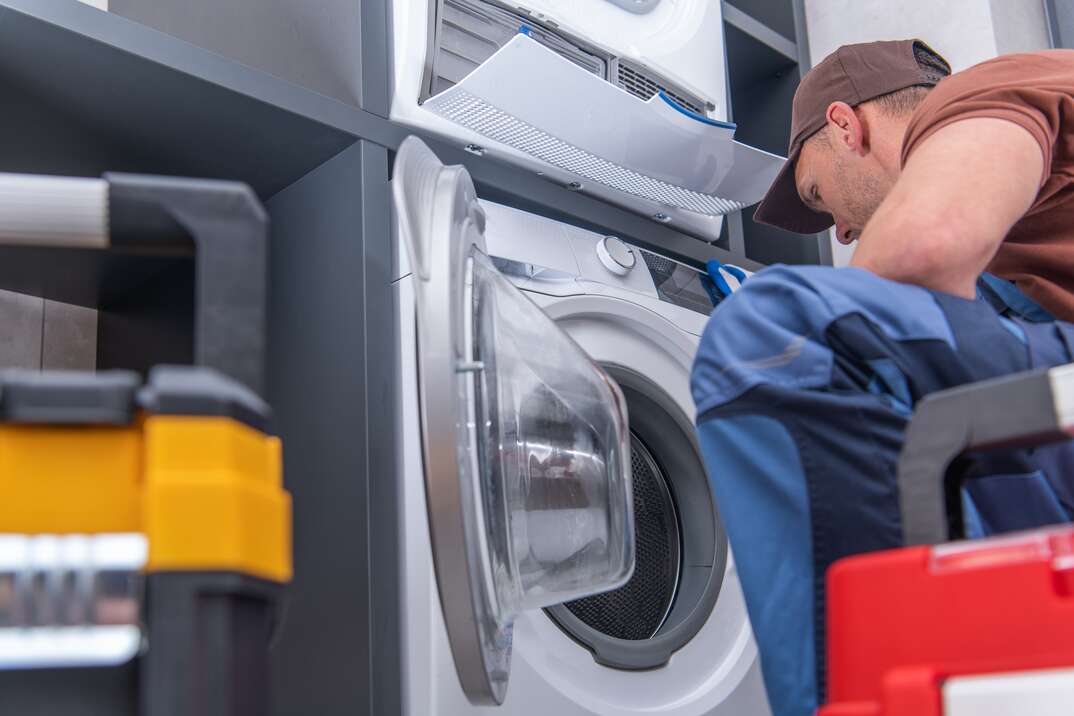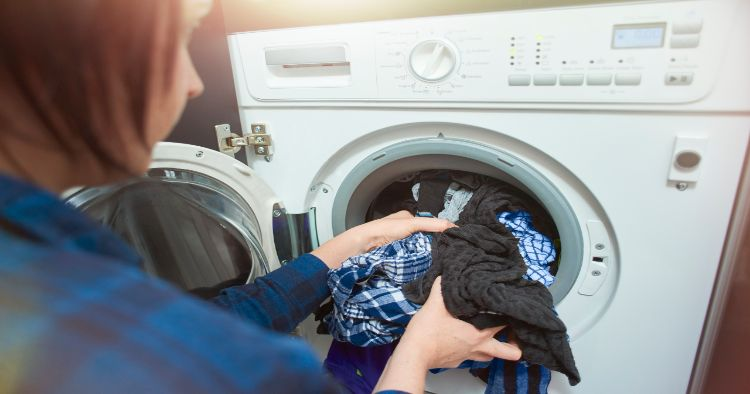5 Reasons Dishwashers Leak — and How to Prevent Leaks Before They Start
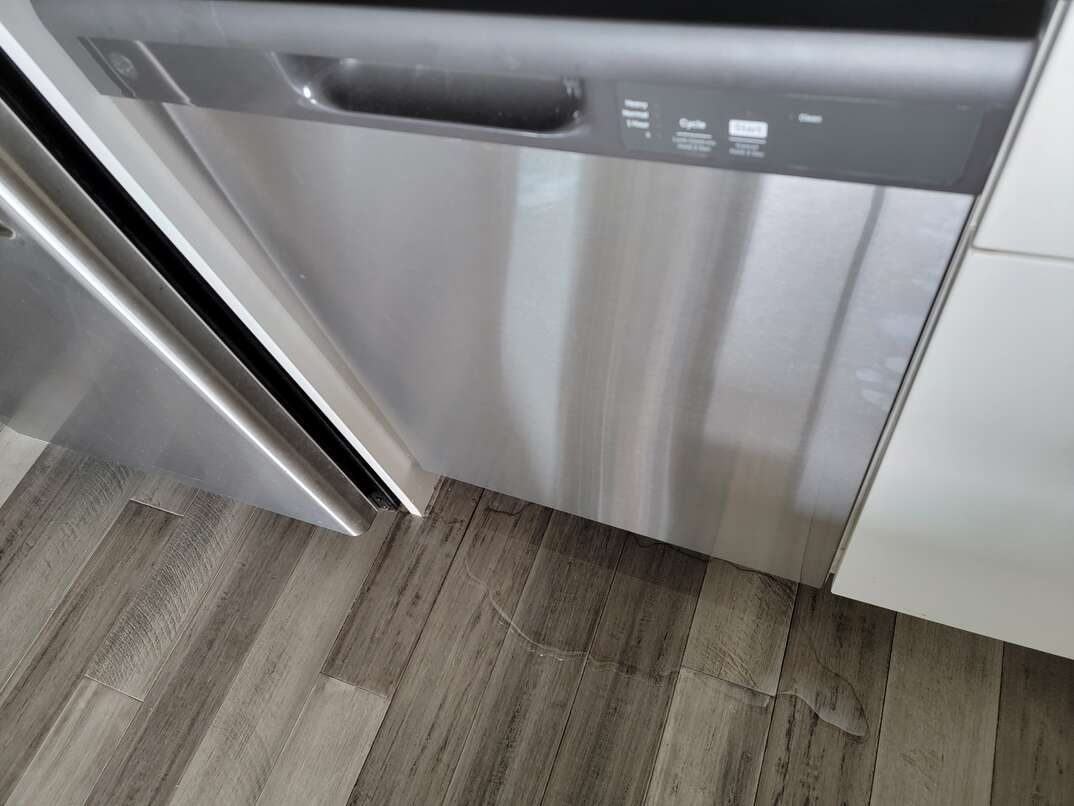
In the realm of kitchen appliances, dishwashers are notorious for being the most finicky. They can frequently malfunction, and oftentimes, it seems that paying for repairs may set you back nearly as much as purchasing an entirely new dishwasher would. It’s no wonder, then, that a dishwasher flooding or leaking water might send a chill down the spine of even the most seasoned homeowner.
This May Also Interest You: Weird Sound Coming From the Dishwasher? How to Diagnose Dishwasher Noises
But the good news here is that a leaking dishwasher isn’t always the first sign of a major problem. In fact, the reasons for some dishwasher leaks can feel downright silly. So how do you prevent a leaking dishwasher? And, perhaps more importantly, how can you spot a problem before a leak starts? We’ve got you covered.
Common Causes of a Leaking Dishwasher
Clogged Filter
If the dishwasher filter isn’t cleaned on a regular basis, there might be a buildup of food and other debris, leading to your dishwasher leaking from the front. To prevent this, you need to clean the filter.
Fortunately, cleaning a dishwasher filter only takes a matter of minutes. Start by removing any noticeable food or debris from the filter (located on the floor of the dishwasher), then twist to unlock it. Remove the cylindrical tube and scrub it with warm, soapy water. After you’ve scrubbed away any errant food debris, run hot water over the filter and put it back into place.
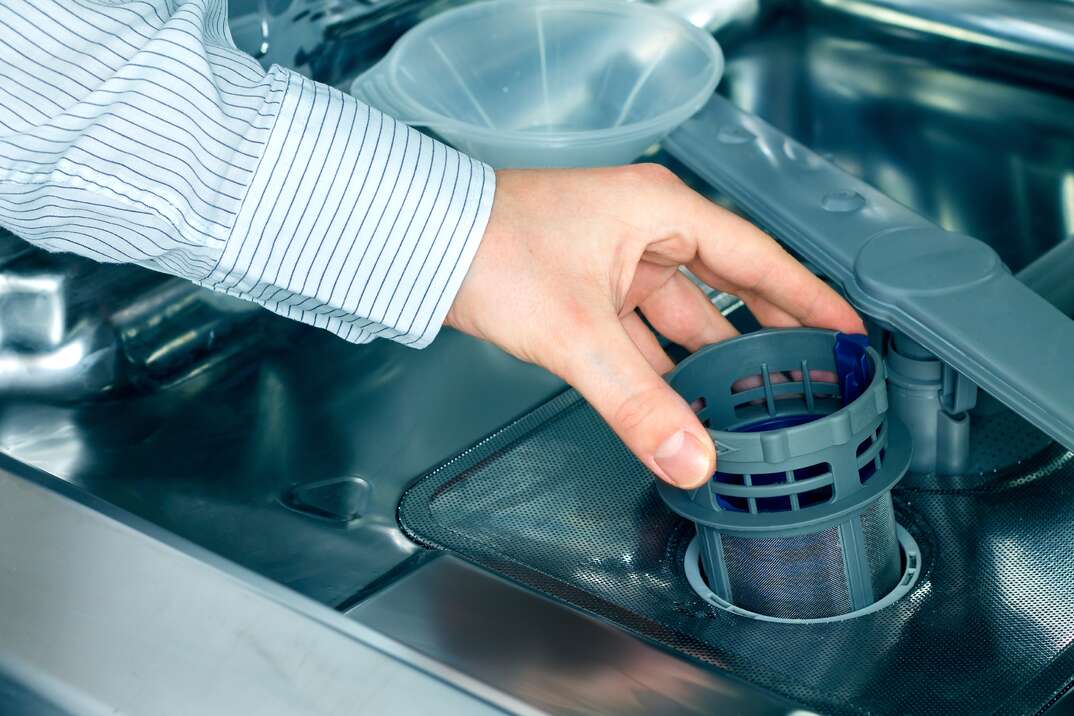
Failing Gasket Seal
Another common cause of dishwasher flooding is a failing dishwasher seal or gasket. This can cause leaks around the door. Food debris can also get stuck along the edge of the gasket and prevent the dishwasher’s door from closing completely.
Take a moment and check for any collected food particles and remove any that you find. Even if the dishwasher is not currently leaking, food particles stuck along your gasket are a sign that a leak might develop soon.
If your seal’s showing signs of old age (drying out, cracks), you’ll need a new one. The good news is that a dishwasher gasket replacement is a rather simple replacement. As you peel away the old seal to make way for a fresh gasket, make sure that the area is clear of debris and that you press evenly on all sides of the new gasket.
More Related Articles:
- The Filth Shall Get Them Clean: Why You Don’t Need to Pre-Rinse Your Dishes
- Don’t Get Lost in the Wash: How to Use Your Dishwasher Efficiently
- Should You Repair or Replace Your Dishwasher?
- How Much Do Countertop Dishwashers Cost?
- What’s the Deal With Countertop Dishwashers?
Damaged Drain Hose
Dishwashers with a damaged or loose drain hose can leak from underneath. You can check yours by removing the kickplate at the bottom of the dishwasher and looking for water leaking along the drain hose. Double-check that the drain hose is securely fastened and tighten as needed. If that doesn’t do the trick, inspect for any cracks or splitting and replace if necessary.
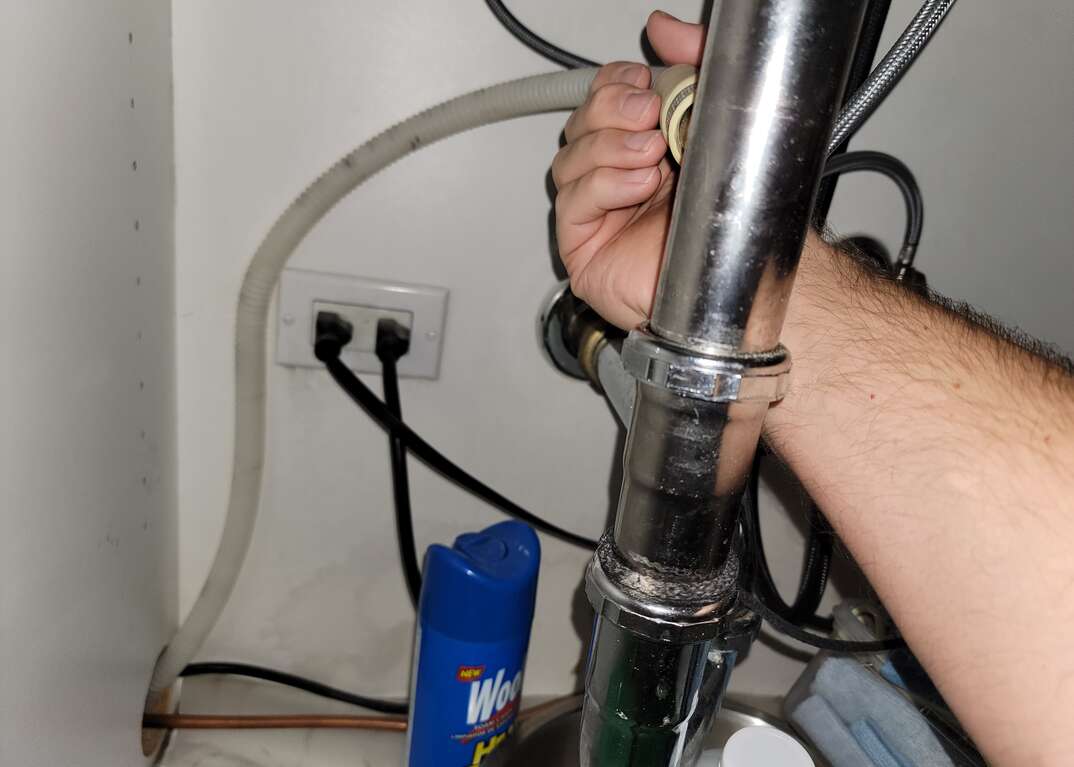
Improper Alignment
Alignment issues can also cause leaks from the bottom. A dishwasher that’s not level is bound to leak at some point, so ensuring that your dishwasher is perfectly level will help to prevent leaks before they start. You can adjust the dishwasher’s two front legs or add shims as needed to make sure it’s properly aligned.
Using the Wrong Detergent
Yep, you read that correctly. Using a soap not intended for dishwashers can cause a major, sudsy leak. If you’ve ever tried using traditional dish soap as a quick replacement for dishwasher-specific powder or liquid, then you know what we’re talking about here. The suds can get out of control quickly and put pressure on the dishwasher’s door seal, causing an overflow.
The good news is that all you need to do to avoid a soapy mess is use the correct detergent from here on out.
Leak No More
Whether you have a Frigidaire or GE dishwasher (or any other brand for that matter), the issues surrounding dishwasher leaks tend to be the same. Plus, many dishwashers leaks are the result of pretty common issues that are relatively easy to fix. And knowing the signs that a dishwasher may fail or leak beforehand can often help you prevent leaks before they start.
To keep your dishwasher in top form and leak-free, check to ensure your washer is level, make sure to clean your filter regularly, keep an eye out on the integrity of the gasket around the door and, finally, don’t pour heaps of regular dishwashing soap into your machine willy nilly. Your finicky dishwasher may not thank you outright for your diligence, but it is likely to perform better and leak less, which is a pretty good consolation prize.
